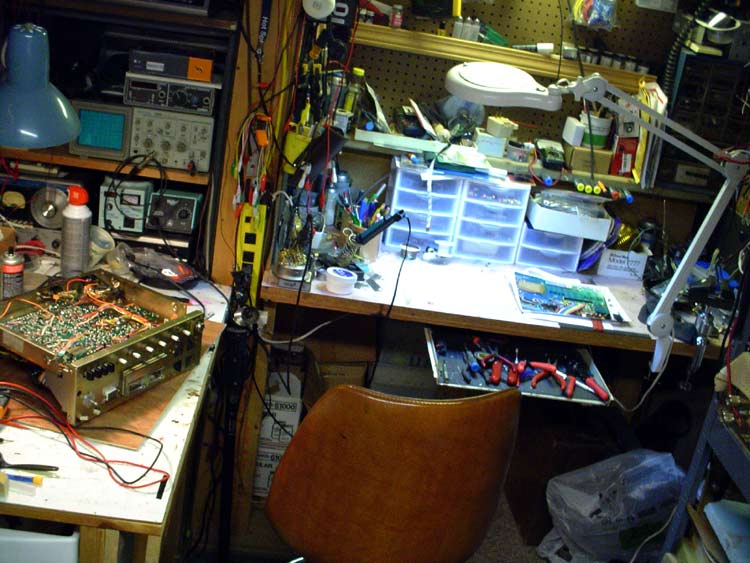However, I have been perusing a lot of radio forums and all seem to suggest bringing a newly built or re-build amp up slowly on a Variac.... Not sure if this is a good idea with my amp or not..
What say Ye all?

Dedicated to the restoration and preservation of all original Dynaco tube audio equipment - Customer support for Tubes4hifi VTA tube amp and preamp kits and all Dynakitparts.com products

 Do I need a VariAC?
Do I need a VariAC? Re: Do I need a VariAC?
Re: Do I need a VariAC?mcgyver74 wrote:So I should be done with the build of my ST120 in a few days and will be ready to do the initial startup procedure documented in the manual.
However, I have been perusing a lot of radio forums and all seem to suggest bringing a newly built or re-build amp up slowly on a Variac.... Not sure if this is a good idea with my amp or not..
What say Ye all?

 Re: Do I need a VariAC?
Re: Do I need a VariAC? Re: Do I need a VariAC?
Re: Do I need a VariAC?
 Re: Do I need a VariAC?
Re: Do I need a VariAC? Re: Do I need a VariAC?
Re: Do I need a VariAC? Re: Do I need a VariAC?
Re: Do I need a VariAC? Re: Do I need a VariAC?
Re: Do I need a VariAC? Re: Do I need a VariAC?
Re: Do I need a VariAC?
 Re: Do I need a VariAC?
Re: Do I need a VariAC? Re: Do I need a VariAC?
Re: Do I need a VariAC?Peter W. wrote:All of this skims past the very relevant issue of bench safety. I am of several minds on this (Yeah, DeePee, yeah) for several reasons.
Those doing a one-off assembly are probably not going to want to invest in the basics of a safe electronics bench, several hundred dollars (US) at the least.
Those who do this as a hobby are probably already tooled, and take it for granted that "so is everyone else".
In any given year, I probably have anywhere between 50 and 80 items cross my bench. Some multiple times (my stuff), some only once as a courtesy for neighbors or friends - one neighbor in particular being good for five items so far this year. That, and doing this for 40 years means that I am fairly well tooled. But my neighbor is not - he is a kitchen table hobbyist.
Cutting to the chase: What would be the interest in suggesting bench tooling for the various levels of the hobby? This would include some very basic stuff such as NEVER, ever, nohow EVER work on a slab-on-grade concrete floor, or any concrete floor over a metal deck - and up.
Thoughts?
 Re: Do I need a VariAC?
Re: Do I need a VariAC? Re: Do I need a VariAC?
Re: Do I need a VariAC? Re: Do I need a VariAC?
Re: Do I need a VariAC?Peter W. wrote:All of this skims past the very relevant issue of bench safety. I am of several minds on this (Yeah, DeePee, yeah) for several reasons.
Those doing a one-off assembly are probably not going to want to invest in the basics of a safe electronics bench, several hundred dollars (US) at the least.
Those who do this as a hobby are probably already tooled, and take it for granted that "so is everyone else".
In any given year, I probably have anywhere between 50 and 80 items cross my bench. Some multiple times (my stuff), some only once as a courtesy for neighbors or friends - one neighbor in particular being good for five items so far this year. That, and doing this for 40 years means that I am fairly well tooled. But my neighbor is not - he is a kitchen table hobbyist.
Cutting to the chase: What would be the interest in suggesting bench tooling for the various levels of the hobby? This would include some very basic stuff such as NEVER, ever, nohow EVER work on a slab-on-grade concrete floor, or any concrete floor over a metal deck - and up.
Thoughts?
 Re: Do I need a VariAC?
Re: Do I need a VariAC?tubes4hifi wrote:my bench sits on carpeting over carpet padding over wood flooring
Otherwise, a rubber mat is in order . . .
 Re: Do I need a VariAC?
Re: Do I need a VariAC?Link? I don't see it in the Basket yet.Peter W. wrote:I have posted as a new subject under "BENCH".tubes4hifi wrote:my bench sits on carpeting over carpet padding over wood flooring
Otherwise, a rubber mat is in order . . .
 Re: Do I need a VariAC?
Re: Do I need a VariAC?

 Re: Do I need a VariAC?
Re: Do I need a VariAC?